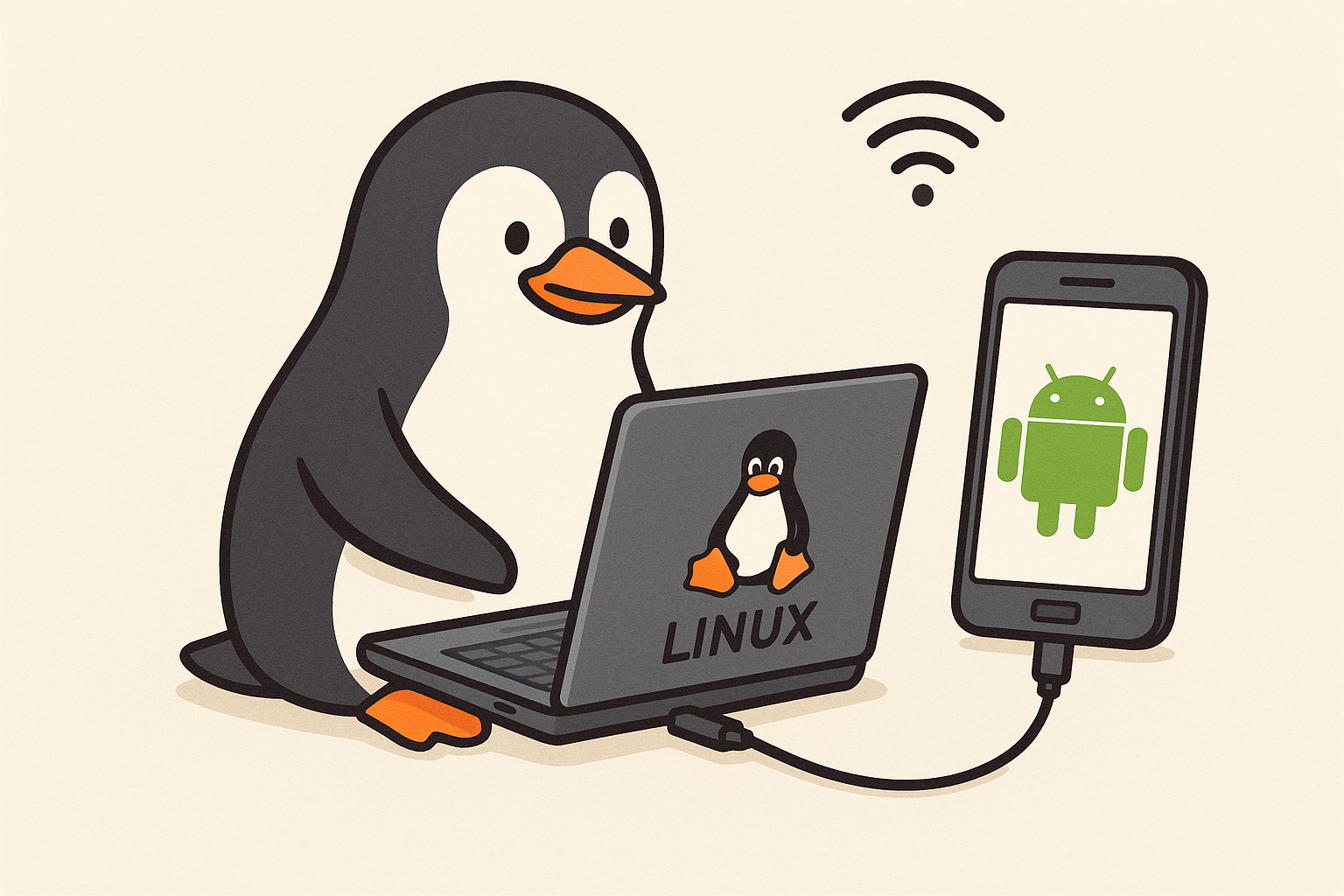When you are on the go, have you thought about connecting your GNU/Linux PC to the Internet through a USB connection to your phone?
- Using open networks is definitely not recommended. Your connection is not encrypted and others could intercept it. If you have no other choice, connecting to the Internet through a Virtual Private Network (VPN) is strongly recommended.
- Even using an untrusted WiFi network protected by a password (like in a hotel or in a commercial building) is not fully secure. If the password is shared, other guests could intercept your connection and try to attack your PC. Here, a VPN is recommended too.
- Using your phone as a WiFi hotspot is a little better if you use a strong password and use “WPA3-Personal” security. However, if attackers know your password (typically through infected phones from friends or family members who used your WiFi hotspot), your connection and PC will be vulnerable too.
A better and safer solution is USB tethering. Your PC uses the Internet connection of your phone through a USB data cable. This is much better in terms of security (nothing leaked through radio waves) and even keeps your phone charged!
My friend Sébastien Dinot recommended this technique to me, and I eventually gave it a try. This turns out to be extremely easy, at least with an Android phone:
1. Connect your PC to your phone through a data cable:
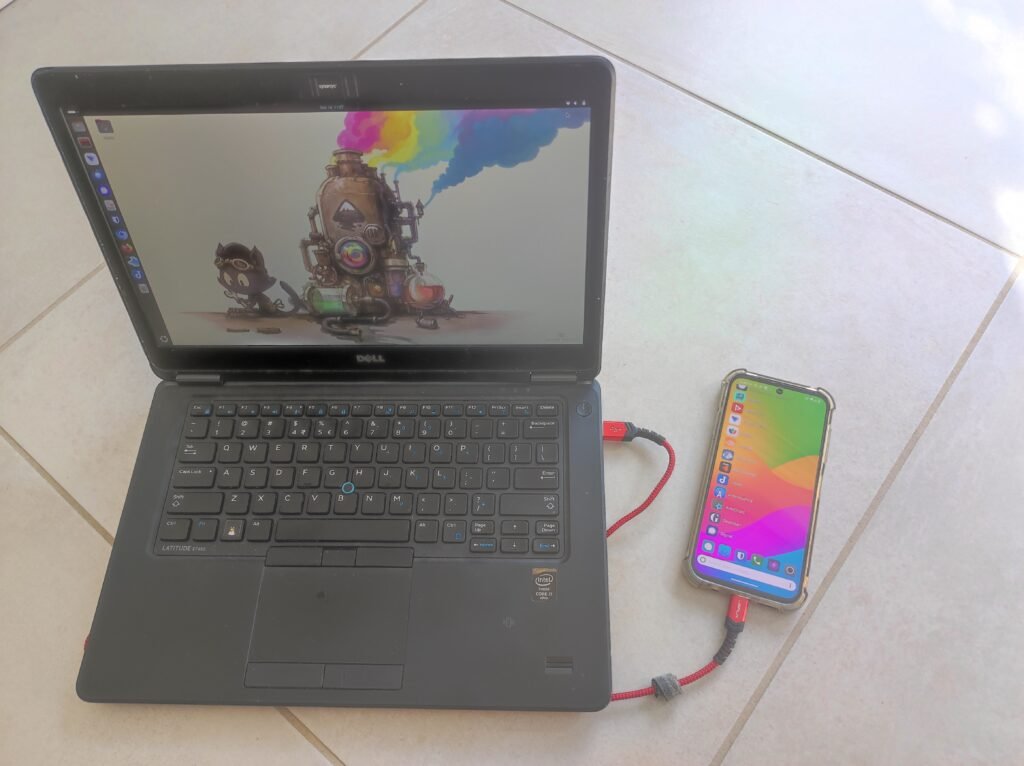
2. A notification appears on your phone.
Tap on the notification for more options:
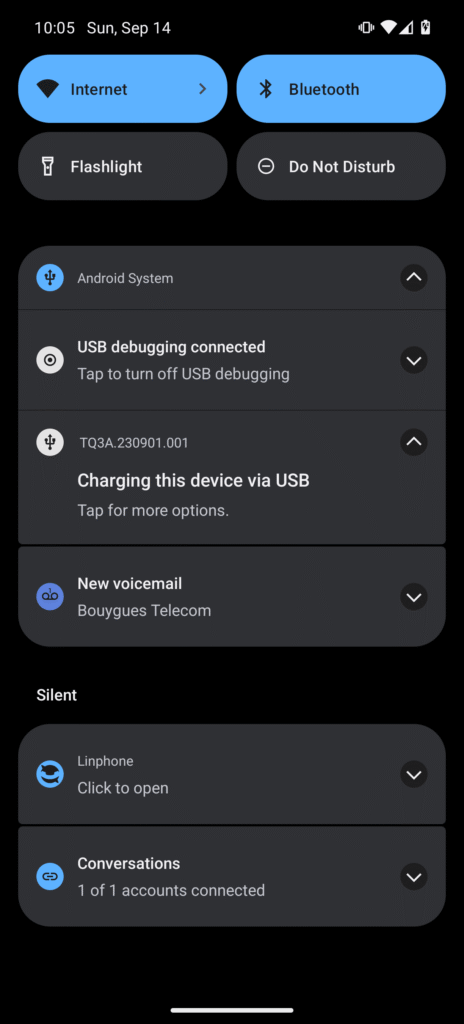
3. Enable “USB tethering”:
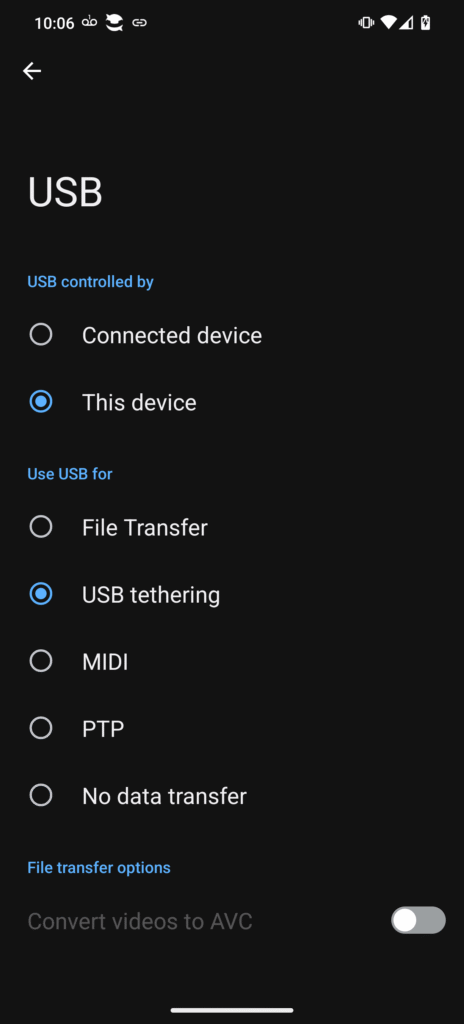
4. On your GNU/Linux PC, you will see that you are connected through your Android phone:
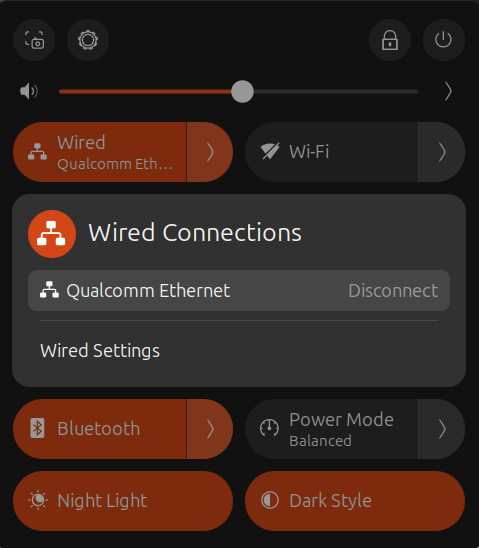
Give it a try the next time you travel. I bet you will carry your USB cable anyway, to charge your smartphone. Just make sure that’s a data cable!

